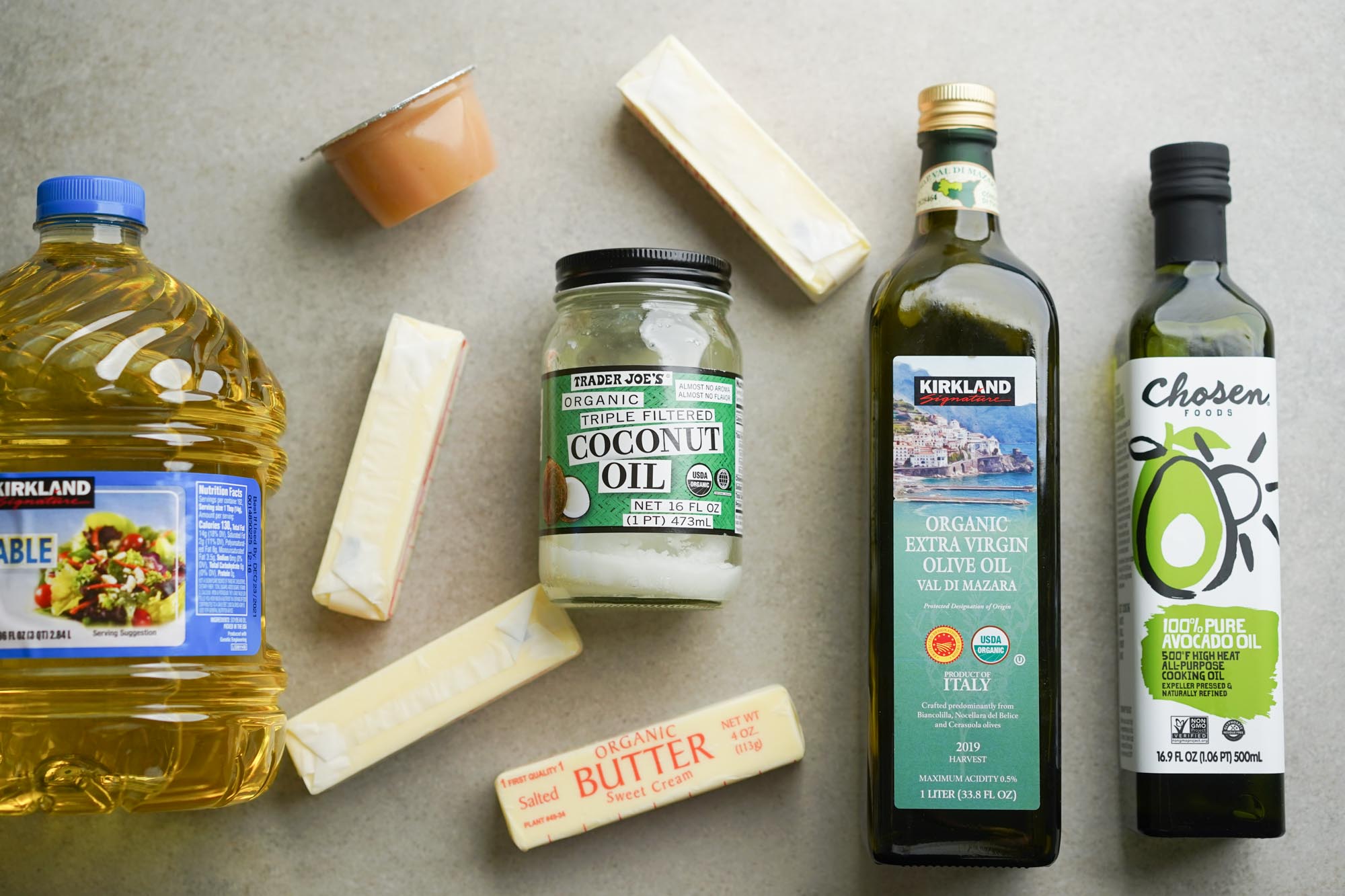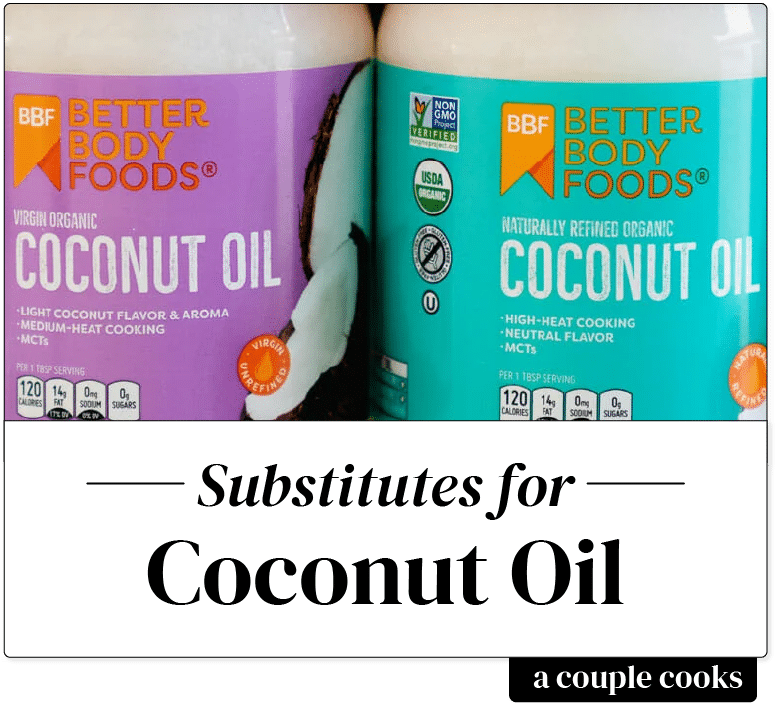Understanding the Problem: Why Seek Alternatives to Coconut Oil?
Coconut oil has been a kitchen staple for years, praised for its rich flavor and versatility. But is it always the best choice? Many are now asking, what oil can I use instead of coconut oil—especially as new health data emerges. Recent research shows coconut oil is about 82% saturated fat, which can raise LDL (“bad”) cholesterol just like butter or beef fat. In fact, the American Heart Association recommends limiting saturated fat to less than 10% of daily calories for most people, and even less for those with cholesterol concerns.
Therefore, if you’re looking to reduce saturated fat, or want a more neutral flavor for baking, it makes sense to explore other options. Interestingly, some alternatives even offer extra health perks, like heart-healthy fats and antioxidants. But which oils are truly the best substitutes, and how do they perform in real recipes?
The Solution: Best Oils to Use Instead of Coconut Oil
Let’s dive into the top alternatives. When asking what oil can I use instead of coconut oil, the answer depends on your cooking method and health goals. Here are the leading options:

- Avocado oil: High in monounsaturated fats, neutral flavor, and a high smoke point—perfect for baking and frying.
- Olive oil: Rich in antioxidants and healthy fats, ideal for sautéing and roasting.
- Canola oil: Low in saturated fat, budget-friendly, and versatile for most recipes.
- Grapeseed oil: Light taste, high in vitamin E, and great for dressings or high-heat cooking.
- Algae oil: Subtle flavor, high smoke point, and loaded with omega- fats.
Each of these oils can replace coconut oil in most recipes. For instance, avocado oil shines in baking because it keeps cakes moist and doesn’t overpower other flavors. Olive oil, meanwhile, brings a subtle richness to savory dishes.
Real Data: Health Benefits of Switching Oils
Switching from coconut oil to plant-based oils can lower your risk of cardiovascular disease. A large-scale study in JAMA Internal Medicine found that high butter consumption is linked to increased cancer and total mortality, while plant-based oils are associated with a lower risk of death from heart disease and cancer. Another report highlights that replacing saturated fats with monounsaturated and polyunsaturated fats can reduce cardiovascular risk as much as cholesterol-lowering drugs.
Case Study: Avocado Oil in Baking—A Experience
In our team’s case, we decided to swap coconut oil for avocado oil in a classic banana bread recipe. Actually, we were a bit skeptical at first—would the bread turn out as moist and flavorful? The result surprised us. Not only did the loaf have a tender crumb, but the subtle taste allowed the banana and cinnamon to shine. Plus, the high smoke point of avocado oil meant no burnt edges, even with a quick, high-temperature bake.
For anyone wondering what oil can I use instead of coconut oil in baking, avocado oil is a fantastic, heart-healthy alternative. It’s loaded with vitamin E and monounsaturated fats, and it keeps baked goods fresh for days.
Comparison Analysis: Coconut Oil vs Avocado Oil
| Project A: Coconut Oil | Project B: Avocado Oil |
|---|---|
| 82% saturated fat, semi-solid at room temp | 60-80% monounsaturated fat, liquid at room temp |
| Distinct coconut flavor | Neutral, subtle taste |
| Smoke point ~350°F (177°C) | Smoke point ~500°F (260°C) |
| May raise LDL cholesterol | Supports heart health, rich in vitamin E |
| Best for lower-heat baking, sautéing | Great for baking, frying, roasting |
Step-by-Step Guide: How to Substitute Coconut Oil in Baking
- Choose your substitute oil: For most baked goods, avocado oil or olive oil works best. If you want a neutral flavor, go with avocado oil.
- Measure equally: Use a 1: ratio when swapping coconut oil with avocado oil. If your recipe calls for ½ cup coconut oil, use ½ cup avocado oil.
- Adjust for texture: If your substitute oil is liquid (like avocado or olive oil), you may want to slightly reduce other liquids in the recipe by 1- tablespoons.
- Mix thoroughly: Blend the oil well with other wet ingredients to ensure even distribution and a moist crumb.
- Monitor baking time: Because avocado oil has a higher smoke point, your baked goods may brown a bit faster. Check for doneness minutes early.
For frying or roasting, simply use the same amount of avocado or canola oil as you would coconut oil. These oils withstand high heat and won’t break down or smoke easily.
Common Misconceptions About Coconut Oil Substitutes
Frequently Asked Questions
What oil can I use instead of coconut oil for baking?
For baking, avocado oil is a top choice because it keeps cakes and muffins moist, has a neutral flavor, and a high smoke point. Olive oil and canola oil are also good substitutes, but olive oil has a stronger taste that may not suit all desserts.
Is avocado oil healthier than coconut oil?
Yes. Avocado oil is higher in heart-healthy monounsaturated fats and vitamin E, while coconut oil is mostly saturated fat, which can raise cholesterol levels. Avocado oil also supports absorption of fat-soluble vitamins and may help reduce inflammation.
Can I use olive oil instead of coconut oil in recipes?
Absolutely. Olive oil works well in most savory dishes and some baked goods. Just keep in mind that its flavor is more pronounced, so it’s best for recipes where a subtle olive note is welcome.
Transitional Tips and Final Thoughts
Switching from coconut oil to alternatives like avocado or olive oil isn’t just about health—it’s also about flavor and versatility. For instance, avocado oil lets the true taste of your ingredients shine, whether you’re baking a chocolate cake or roasting vegetables. However, always consider the smoke point and flavor profile of your substitute oil to match your recipe’s needs.
Interestingly, the global market for vegetable oils is booming, projected to reach over million metric tons by 2030, driven by both health consciousness and demand for sustainable options. This means more choices and better quality oils are available than ever before.

In summary, if you’re still wondering what oil can I use instead of coconut oil, the answer is clear: avocado oil leads the pack for baking and high-heat cooking, while olive and canola oils are strong runners-up for everyday use. By making a simple switch, you can boost your heart health, keep your recipes delicious, and enjoy a wider range of flavors in your kitchen.



